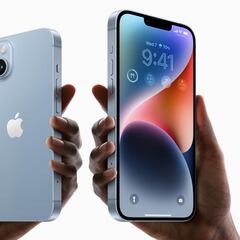When is Apple switching to USB-C chargers?
The tech company has been mandated by the European Union to switch to USB-C chargers for its products and the date has been finalised when this will happen.


Back at the beginning of October the European Union passed a reform to only allow one type of charger for phones, the USB-C. Common in modern Android devices as well as some Apple products, the charger is verstaile and an upgrade on the old generation of micro-USB chargers favoured by older smartphones.
For Apple this poses a problem. The company uses their in-house developed ‘lightning’ charging cable for their phone products. The ruling means Apple are mandated to change their designs in the future with the ruling coming into effect from 2024.
Apple is set to move to USB-C charging on future iPhones to comply with a recently passed EU law on common charging standards, but old charging bricks will work just fine. https://t.co/ynHFUnYSqF pic.twitter.com/I6nvCJqInZ
— Forbes (@Forbes) October 26, 2022
Speaking on Tuesday, Greg Joswiak, Apple’s worldwide marketing chief said Apple will “obviously…have to comply” with the EU ruling adding “we’ve no choice.”
It was expected the iPhone 15, slated for release in 2024, was already going to include USB-C charging. Future iPhone’s are likely to have no charging port at all and feature wireless charging.
Lightning cables have been used by the company since 2012 with the iPhone 5.
Why did the EU rule on a change for charging cables?
EU Commissioner for Competition Margrethe Vestager celebrated the new rule on Twitter, citing the “waste and inconvenience” of having multiple chargers. The European Commission has estimated that a single charger would save about 250 million euros ($247.3 million) for consumers.
#SingleCharger here we go! Final plenary debate @Europarl_EN today. As of autumn 2024 the time when we had to fight with many different chargers will start becoming a memory of old, strange times of unnecessary costs, waste and inconvenience 🤗 pic.twitter.com/agx8O2Eila
— Margrethe Vestager (@vestager) October 4, 2022
Related stories
As the size of the EU market is so fast these changes will have knock-on effects for consumers around the world. It would not make sense for Apple to make two different phones for different regions.
The ruling will also apply to laptops from 2026.

